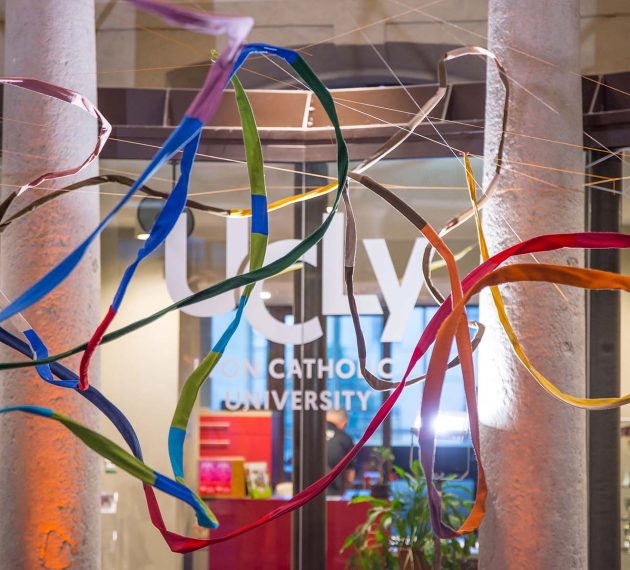A multidisciplinary Research Center to promote convergence and strengthen UCLy's scientific potential

The Sciences & Humanities Confluence Research Center was established as a result of the project to bring together different disciplinary fields which, on the one hand, have their own specific features and, on the other hand, allow cross-approaches with regard to anthropological, scientific and social issues:
- An approach to cultures, based on a scientific analysis of their different manifestations and interactions.
- An approach to individual, social and environmental behaviour from the perspective of the humanities and legal sciences, taking into consideration the question of the meaning they express and convey.
- A "living" approach based on the study of the impact of environmental factors on biodiversity and health, and on cross-cutting disciplines such as epistemology and ethics.
- An approach to religious phenomena, not only from the perspective of critical observation – historical and sociological – and from the study of a specific corpus but also through a methodical study of the reasoned discourse that believing communities themselves hold concerning their faith, which constitutes "theology" proper.
- An approach to how companies integrate social, environmental and ethical concerns into their operations and governance (CSR), and innovation management.
The intersection of these different approaches allows a precise multidisciplinary examination of contemporary ethical issues in the different fields in which they arise (environment, intercultural dialogue, ethics in science).
The Sciences & Humanities Confluence Research Center aims to increase the quality and scientific visibility of UCLy and to promote convergence between its 165 teacher-researchers, including 26 HDR and 13 professors from the canonical faculties (Nihil obstat) as of 01/10/2024.
8 research teams
- Research cluster 1: Theology, philosophy and religious sciences in a contemporary context
- Research cluster 2: Bible, patristics and ancient cultures
- Research cluster 3: Culture(s), language, imagination
- Research cluster 4: People, Support and Education
- Research cluster 5: Ecology, epistemology, ethics
- Research cluster 6: Study of norms in a legal, political and social context
- Research cluster 7: Biotechnologies, Health, Ethics
- Research cluster 8: Sustainable business and organisations
Journals and collection
Three journals and a collection contribute to UCLy's influence. The RU relies, among others, on them to report on its work.
Related pages
The Confluence Sciences and Humanities Research Center has made vulnerability a key focus of its explorations. A decision explained by the center’s Director, Valérie Aubourg.

Founded in 1875, UCLy (Lyon Catholic University) combines respect for humanist values and openness to society.

